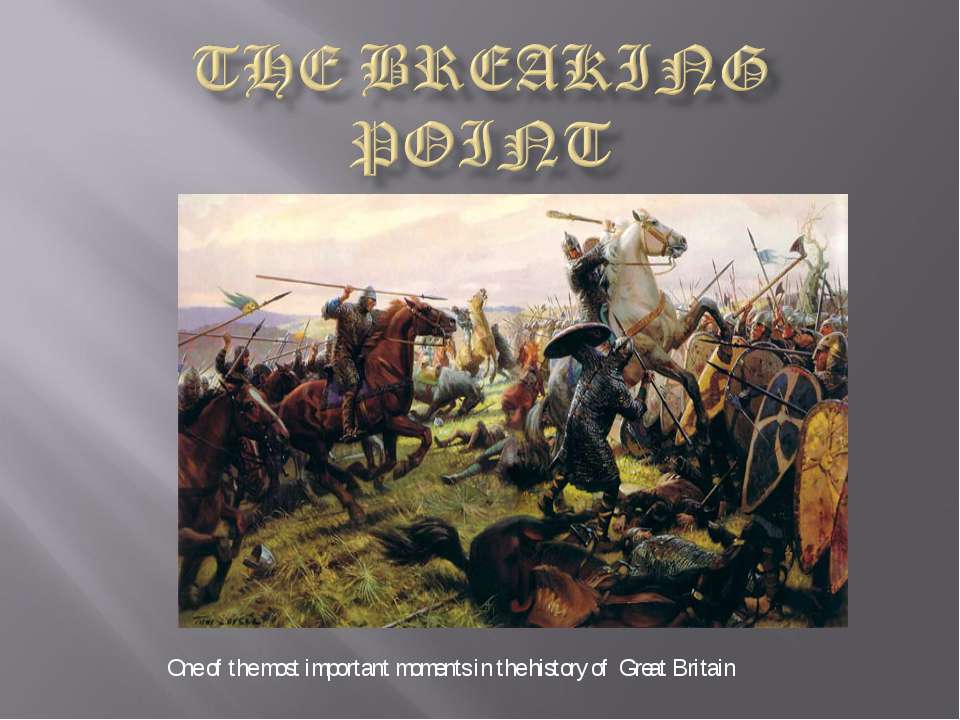The breaking point

- Рубрика: Презентации / Презентации по английскому языку
- Просмотров: 175
Презентация для классов "The breaking point" онлайн бесплатно на сайте электронных школьных презентаций uchebniki.org.ua
400-600 years AD The migration of north Germanic and Danish tribes, called Saxons, Angles and Jutes, across the North sea to the South and East England British territory, settled by Celtic, Jutes, Saxon and English tribes.
Anglo-Saxon jewelry. Replica helmet from Sutton Hoo 8th century cross at Eyam We can see that the Anglo-Saxon culture was rich, it includes not only German traditions, but also traditions of Romans, Celts and Britons.
Viking and Norman warriors Of course, in the 11-th century Normans brought into England their traditions and, in addition, they changed English language by using French! Normans – French-speaking descendants of Vikings, who lived in Normandy (North France) and who kept traditions of these great warriors.
Harold II Godvinson (1022 – 14 October 1066) The last Anglo-Saxon king of England. Harold reigned from 6 January 1066 until his death from a simple arrow at the Battle of Hastings on 14 October of that same year, fighting the Norman invaders led by William the Conqueror during the Norman conquest of England. Harold is one of only three Kings of England to have died in warfare, alongside Richard the Lionheart and Richard III. William I “The conqueror” (1027-1087) – the duke of Normandy. He became the king of England after his great victory at Hastings. Established a direct vassal of the feudal lords of the king, held a census of his subjects. English witenagemot (the head of English government) chosen William to rule the England after death of previously king Eduard. But Harold wanted to rule England too… Then, William started his great English war campaign. There isn’t any historical right portret of Harold Godvinson
Harold’s death Fight between Norman knight and two Anglo-Saxon pike men (fyrd members) Housecarl (the king Harold’s guard) These warriors were armed with Danish axes.













